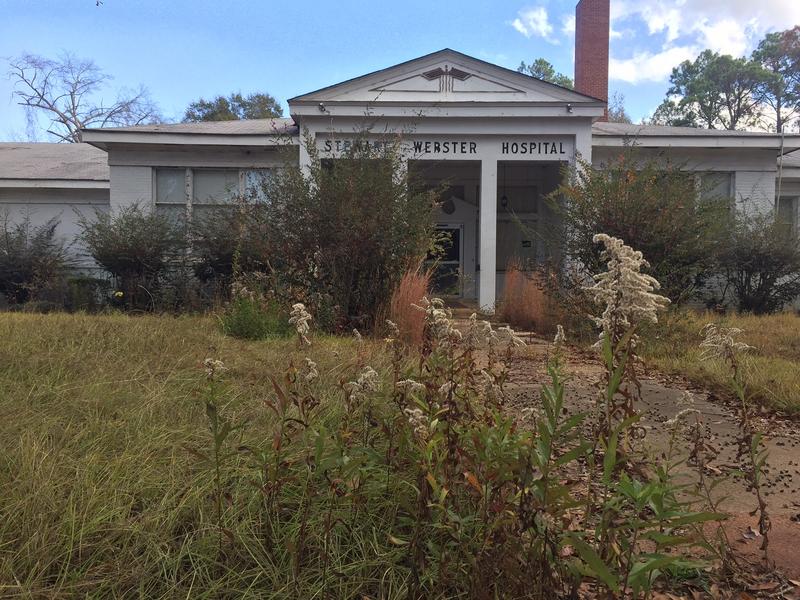
By Elly Wu – WABE 90.1
Cindy Jones still can’t help but think about the timing of things. Stewart-Webster Hospital, the place she and her family had gone to for years, closed in March of 2013. A month later, her husband Bill suffered a heart attack.
“He came in from a day of farming and ate supper, and then sat down to watch David Letterman,” Jones said. “And all of a sudden he got quiet, and we knew something was wrong because he wasn’t laughing at David Letterman anymore.”
She called an ambulance, which arrived about 15 minutes later, she said. They took him to a hospital in Cuthbert, Georgia, about 25 miles from her Lumpkin home. Her husband was pronounced dead there. He was 52 years old.
“I just feel like that not getting him there within that golden hour had a lot of bearing on his death,” Jones said.
She said she feels like they lost time traveling to the hospital, and would have taken him to their local hospital, which was 9 miles away, had it still been open.
“I can’t be certain, but I just feel like that would have helped him tremendously,” she said.
A Common Struggle
Stewart-Webster Hospital is one of five rural hospitals in Georgia that have closed since 2013, and there are many other hospitals struggling to keep their doors open. The Georgia Department of Community Health ranked the state’s neediest rural hospitals this month for a program intended to lure donations to the hospitals.
Before it closed, residents in Stewart County could go to Stewart-Webster, a 25-bed hospital with an emergency room. Sybil Ammons, who used to be the director of nursing at the hospital, said it played an important role for people in the community – be it for a sick child in the middle of the night, a hunting accident, a car crash or any other sudden medical need.
“We’ve saved a lot a lives,” she said. “We did have to transfer them to a bigger hospital but they were stabilized at Stewart-Webster.”
Today, the one-story building is surrounded by overgrowth, its white paint chipped.
“It’s just devastating to see it in the shape it’s in now,” Ammons, now the county coroner, said.
When it closed, 70 people lost their jobs, she said.
There are other rural hospitals that could face a similar fate, said Jimmy Lewis, CEO of Hometown Health, an organization that represents about 50 rural hospitals in the state.
“The state of rural hospitals in Georgia is very fragile,” he said.
He said a hospital needs about 40,000 people to support it without any subsidies. Counties like Stewart have about 6,000 people. Rural hospitals also treat a lot of patients who are poor, uninsured and chronically sick, he said.
“Rural hospitals as we know them at this stage of the game will forever need some kind of subsidy,” Lewis said.
Medicaid Cuts
Hospitals have been hit by payment cuts in Medicaid in the state, Lewis said. Payments that have been going to hospitals to help pay for low-income patients, called Disproportionate Share Hospital payments, is expected to end soon, he said.
Georgia is also one of 19 states that did not expand Medicaid under the Affordable Care Act.
To help rural hospitals keep their doors open, state lawmakers approved a tax credit for people to donate money to rural hospitals. Critics say the program, which starts in January, will only go so far. Lawmakers say they’ll continue to talk about rural healthcare in the next legislative session.
Lewis said the hospitals he represents serve about 1.8 million people in a state of about 10 million people.
“Politically speaking, [1.8 million] of 10 million? The rural community finds itself in a very vulnerable position to the urbanization of the state of Georgia,” Lewis said.
Meanwhile in Richland, Mayor Adolph McLendon, said having a hospital is not just about health – but also about the rural economy.
“Broad Street was full of businesses, and it’s not full of businesses now,” McLendon said. “So we’re trying to come back, but it’s hard.”
Hard because attracting new businesses without a hospital is tough, Ammons said.
“Without healthcare people don’t want to stay here,” she said. “I don’t blame them.”
McLendon said the town is trying to get a six-bed emergency treatment center, but they’re still in the talking phases of the project and haven’t raised the money.
Copyright © WABE 90.1
Source: WABE 90.1

